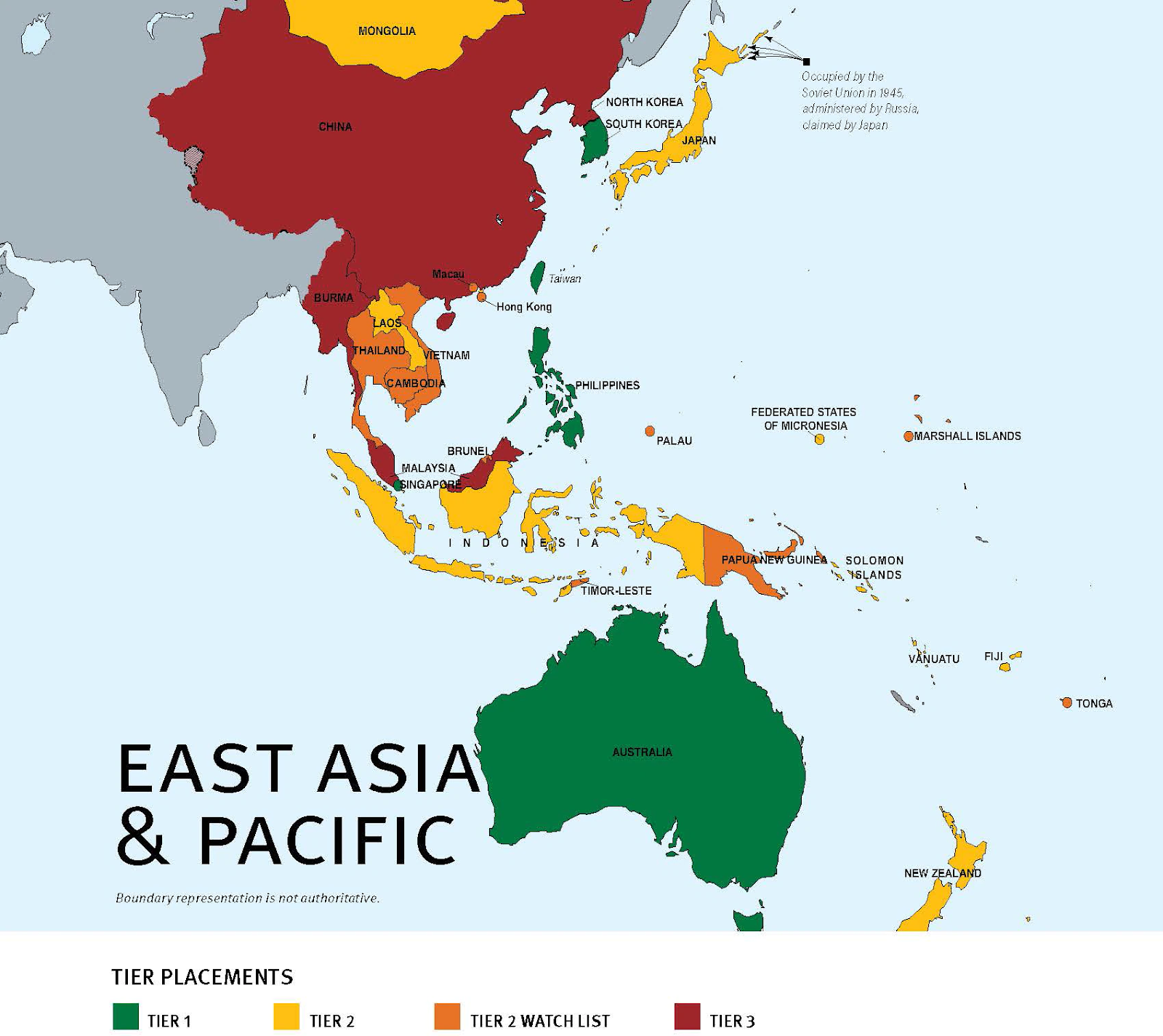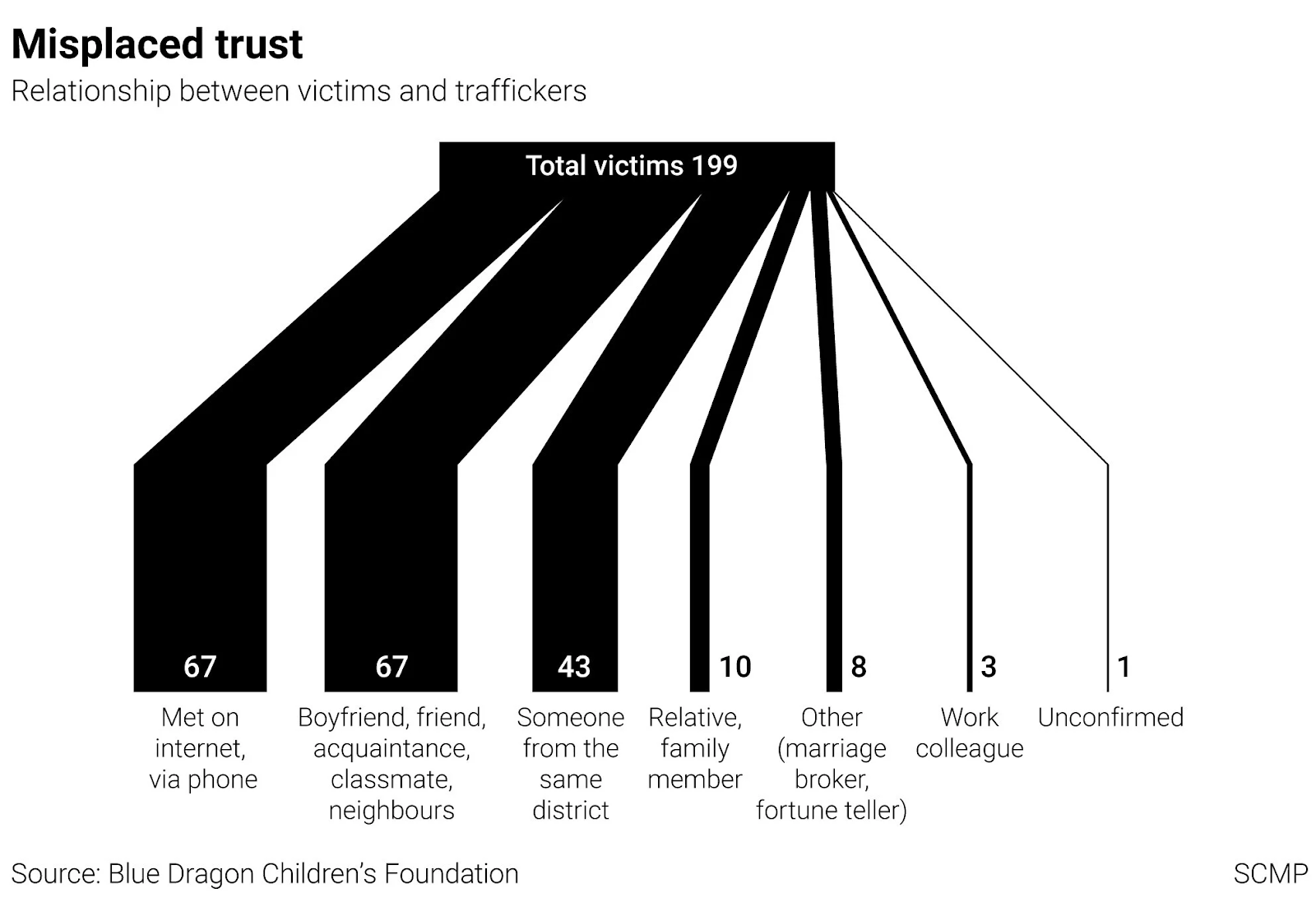The ‘Settle Down’ Crisis of the Salaried Working Class in Việt Nam
Social housing has long been touted as a “lifeline” for salaried workers amid surging home prices and rising interest rates.

On July 1, 2021, the U.S. Department of State released its annual global report on human trafficking. The 2021 Trafficking in Persons report ranked Vietnam as a “Tier 2 Watch List” [1] for the third consecutive year.
According to the placement guiding [2], governments that fully meet the Trafficking Victims Protection Act’s (TVPA) minimum standards to eliminate human trafficking are placed on “Tier 1.” In contrast, countries that fail to meet minimum standards but make a significant effort to comply are ranked as “Tier 2.”
However, these Tier 2 countries also risk being placed on a “Tier 3 Watch List” if they do not take “concrete actions” to combat the increasing number of human trafficking victims or if they fail “to provide evidence of increasing efforts to combat severe forms of trafficking in persons from the previous year.”
Without a further genuine effort to improve the current situation, Vietnam could be downgraded to “Tier 3,” which might lead [3] to restrictions on financial assistance from the United States, the freezing of officials’ assets, and restrictions on immigration.

In Vietnam’s case, the State Department declares that the Vietnamese government “does not fully meet the minimum standards for the elimination of trafficking but is making significant efforts to do so.”
The report acknowledges considerable efforts taken by Vietnam to eliminate human trafficking, including ramping up prosecutions against human traffickers, passing legal revisions to terminate hefty brokerage fees. Brokerage fees will make workers fall victim to debt bondage, and later they would be susceptible to forced labor.
It also notices that Vietnam has enhanced worker protections, strengthened law enforcement, increased financial budgets to assist victims of trafficking, provided protection services for identified victims, and implemented extensive awareness programs in vulnerable ethnic communities.
Nevertheless, the country has not demonstrated sufficient effort regarding its anti-trafficking protocols, given the impact of Covid-19 on the overall capacity to combat illegal human trading activities, compared to the previous period. Furthermore, the report states that Vietnam has also fallen short on systematically identifying victims of trafficking, which results in “some victims [being] penalized for unlawful acts [that] traffickers [compel] them to commit.”
The Blue Dragon Children’s Foundation, a non-profit charity that rescues and helps the victims of human trafficking in Vietnam, stated in a study [4] that over 60 percent of victims and traffickers come from ethnic minority groups, such as Hmong or Thai. Some of Vietnam’s northern border provinces, in which diverse groups of ethnic people dominate, witness the highest rates of illegal trafficking and border crossings.
According to the charity’s latest analysis [5], between 2012 and 2020, Hmong people accounted for over 32 percent of the total victims and 33 percent of the total traffickers, while only making up 1.4 percent of the country’s population.
Also, the traffickers, as well as their victims, share poor economic and educational backgrounds. Most of the prosecuted traffickers, around 80 percent, are illiterate or did not finish high school.
The lack of general knowledge about laws and human rights, coupled with grinding poverty, proves to be the main reason these people take up [6] trafficking or recruitment to generate extra income and “escaping” poverty.
At the same time, people between 19 to 25 years old are the most vulnerable to these illicit activities, while children under 16 account for 42 percent of the total number of trafficked victims. Based on gender, all of the 199 trafficked victims recorded by Blue Dragon were females. Meanwhile, male traffickers comprise nearly 60 percent of total prosecuted offenders.
In a majority of cases, the traffickers have close relationships with the victims. They could be their friends, family members, relatives, neighbors, or acquaintances.

Following the data compiled by the Blue Dragon Foundation, forced marriage and domestic servitude accounted for the majority of all prosecuted cases. The victims, mostly women, are often lured and misled by false promises of well-paid job opportunities in foreign countries, but they are eventually forced into marriage with Chinese men.
Other forms of human trafficking, which include [7] forced labor and commercial sex, are also ubiquitous.
Vietnamese workers, especially under labor export programs, are subject to forced labor when they cannot pay off their debts to their recruitment company. Meanwhile, some Vietnamese female workers travel to other Asian countries for brokered jobs [8] as hostesses in massage parlors, karaoke bars, or restaurants.
Overall, the Vietnamese government has displayed visible efforts in reinforcing its existing legal framework against human trafficking. The current anti-trafficking legislation [9] of Vietnam includes:
Despite being regarded as “sufficiently stringent” in the State Department’s report, current prosecution laws against trafficking in Vietnam still contain certain loopholes.
For example, the application of Article 150 to cases involving children between the ages of 16 and 17 remains ambiguous, leading them to be treated as adults. Therefore, the article does not fully constitute all forms of child trafficking.
Other notable shortcomings include the lack of law enforcement regarding domestic trafficking and forced labor, especially with male victims, and the insufficient training of law enforcement officers in handling such cases. These are some limitations that could hinder the country’s progress towards eliminating labor exploitation and the illegal activities of human trafficking.
The State Department’s report proposed prioritized recommendations that the Vietnamese government could implement to improve the situation.
These recommendations focus on:
Vietnam's independent news and analyses, right in your inbox.